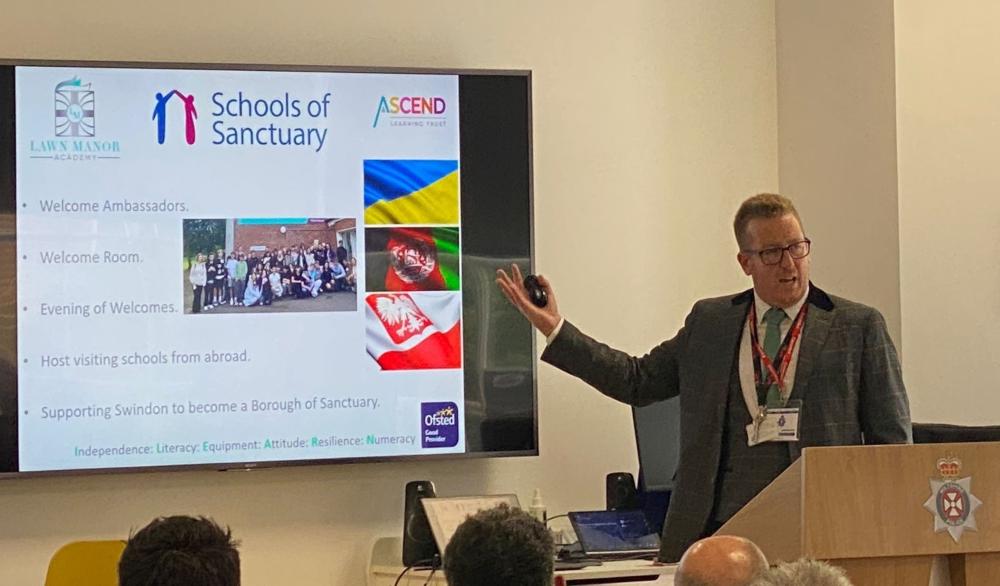Education provision in Swindon has been brought into sharp focus following a highly critical assessment by South West Ofsted director Bradley Simmons.
But his criticisms have been met with a robust defence from Swindon Borough Council and teachers in the town.
In an open letter Mr Simmons claims that children in the town are being failed at every key stage.
He also accuses the council of being ‘defensive’ in their response to concerns over education raised with them on ‘at least three different occasions’.
Turning to primary schools, he singles out 2016 phonics outcomes as being some of the poorest in the country, with only 76 per cent of six-year-olds meeting the expected standard – placing Swindon in the bottom of 10 local authorities nationally.
He states that at Key Stage 1, the town’s seven-year-olds are the joint lowest performers in reading in the South West and at Key Stage 2, Swindon’s outcomes are amongst the lowest in the country, with only 44 per cent of 11-year-olds reaching the new expected standard in reading, writing and maths. Only 2 per cent of pupils received a higher standard compared with 5 per cent nationally.
Children in Swindon’s secondary schools raise similar concerns with their results being below the national expectation.
Mr Simmons points out that recent inspections of five secondary schools in the town indicate ‘a trend of decline’.
‘While The Ridgeway School and Sixth Form College maintained its good rating, Kingsdown School failed to improve from ‘requires improvement’, The Dorcan Academy and Isambard Community School declined from requires improvement to inadequate.’
The proportion of pupils attending a ‘good’ secondary school in Swindon has now reduced from the previous 52 per cent in August 2015 to just 47 per cent in September 2016.
The proportion of pupils receiving a fixed term exclusion is ‘alarmingly high’ in both secondary and special schools he said – about 10 per cent compared with a national average of 7.5 per cent and 68 per cent in special schools compared to a national figure of 13.5 per cent.
Mr Simmons concludes his letter by urging all involved in leading and supporting these schools to take ‘immediate action’ to bring about rapid and sustained improvements across the authority.
He adds that all those involved must ‘act swiftly and in unison’ to ensure that pupils in Swindon have better outcomes and the skills and qualifications to improve their life chances and employment prospects.
Reacting to the criticisms, Swindon Borough Council said the the judgement was ‘unfair’ and based on ‘selective’ data.
Addressing Mr Simmons’ claims, the council points out that according to Ofsted’s own assessment, 98 per cent of early years settings in the town and 92 per cent of primary schools have been rated good or outstanding – this being above national average.
Defending primary education, the local authority says that pupils met the national average for reading, mathematics and grammar – including punctuation and spelling.
It adds that lower writing results reflected the introduction of a new writing assessment with Swindon schools interpreting marking guidance very strictly whereas other local authorities ‘appear to have been much more generous in their judgements.’
Regarding secondary education, the council statement reads: ‘We share concerns about secondary education although we have some very good schools in the town such as Ridgeway, Lydiard Park, Warneford, Commonweal and St Joseph’s.’
It concludes: ‘On a daily basis we see the good work that is going on in Swindon’s schools. By making his views so public in this way, Mr Simmons must have recognised the demotivating impact they would have on teachers. In fact it has really angered many headteachers of good and outstanding schools who are doing an excellent job providing high class education for children and young people.’









Your Comments
Be the first to comment on this article
Login or Register to post a comment on this article